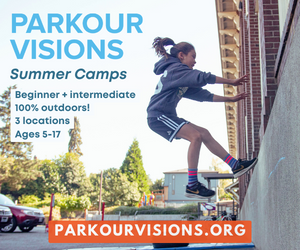There are a lot of lists out there with tips on how to NOT raise an entitled, obnoxious kid. But here’s what those lists don’t address; I WANT to give my kids the things that they want, and I want them to know we, their parents, have got it covered.
It didn’t go that way for me as a kid. My parents didn’t have it together, and I definitely didn’t get the things I wanted. I need our children to understand my history, and I want them to know the way I was raised is much more common than their reality. I want them to feel lucky, have empathy, and understand that they’ve got it good. But I also want them to sometimes have the things they want.
It’s confusing. We’re sending conflicting messages to our kids: understand the value of money, not everyone has it so good, be grateful, blah, blah, blah. And just as smoothly, I replace lost jackets, take skads of girls to the movies on Friday nights, and buy new shoes and weeks at expensive summer camps.
I’m trying to find the balance. I want to help my kids feel like they’re safe and all of their needs, and some of their wants, are covered, but I also want to help them feel grateful. I want to guide them toward a greater understanding of the world at large, and not allow them to become entitled.
In so many ways we are the most privileged. My kids are white, living in a middle class family in a safe, vibrant neighborhood. They are so lucky. None of this did they earn; they were born into it. And I am grateful. I want to help her learn to be grateful.

So Here are 5 FREE Ways to Teach Gratitude and Not Raise Entitled Kids:
1. Give the gift of your time
Instead of buying a treat or a toy to celebrate an academic success, a special milestone, or just your average Friday, do something free together. Family game night, a night walk, hiking, etc. The memories you create together have so much value. When you celebrate in this way, it teaches your children about your family values. It says, “in our family, people have the most value, rather than things or money.”
2. Read with your children
Choose books about other cultures, places, and religions. Read books about other parts of the United States, and about other time periods. Check out books about the Civil Rights Movement, Women’s Suffrage, Child Labor, etc. The Multnomah County Library System is a treasure trove (and no late fees on children’s books)!
3. Donate your gently-used clothes and toys
Involve your children in this. Talk about the kids that will be so happy to play with the Hot Wheels tracks that your sweet baby never plays with anymore. Tell them they are lucky that they have so many things. Not everyone is so lucky, but by recycling their old stuff they have a chance to help someone else be really lucky! They are the givers of luck. What a gift.
4. “Needs” vs “wants,” and helping them save up
Talk about money and how those fancy kicks (or if you have little kids, the twin Hatchimals) aren’t something they need, but something they want. You can help them save their own money so that they can buy it themselves. Help them understand how long it takes to save $70, and how much money that really is.
5. Lead by example
We want them to do good, so let them see you doing good. We want them to not drop their trash on the ground, so let them see you pick up your garbage, and let them see you pick up someone else’s. We want them to understand that they are part of a community and that their role is important, so let them see you play your role. Greet your neighbors, help at school when you can, be the first to say yes to a friend in need. Show them what it looks like to give.
It may take a shift in your family dynamic, or the way that you parent. If you are parenting with someone else, make sure you are both on the same page. Discuss your goals and your path to getting there. When you show them the difference between living grateful vs living entitled, and when you begin to put time and service above things and money, your children will get it. They will become the people you know they can be.



















We were just discussing this in my moms group recently. Thank you for providing these great key points. I think it’s challenging in this age to help kids keep a perspective of gratitude… but soooo important because of that, too.
Comments are closed.